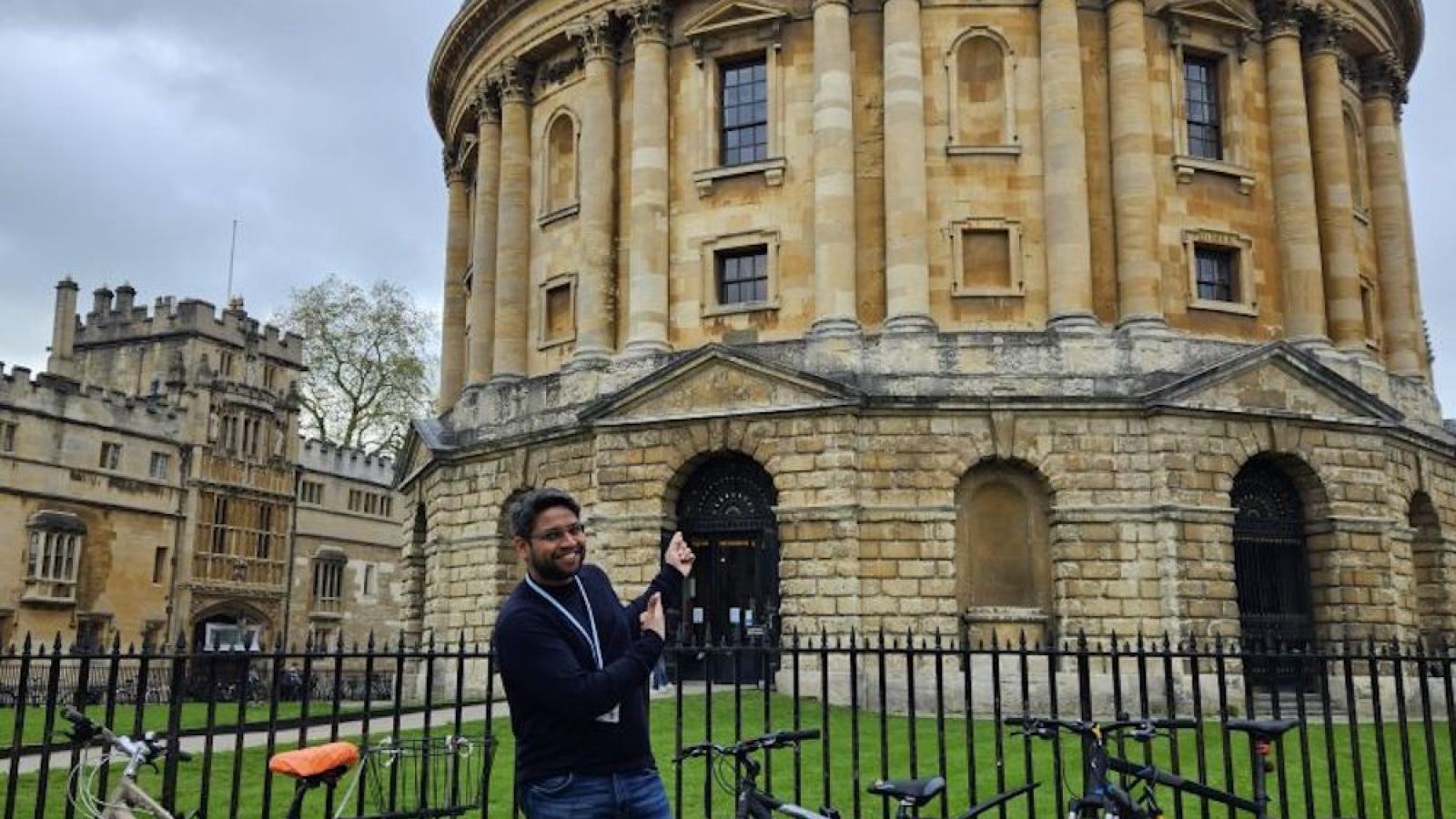How did you hear about the programme and what was your pathway prior to the MSc?
Two years ago, I applied for the Oxford Executive MBA but I received an offer from London Business School. However, I didn't want to miss out on the Oxford experience, so after completing my Executive MBA, I began looking for relevant programmes that could apply to my field and be part-time. The recruitment team at Oxford Saïd recommended the MSc in Major Programme Management to me and it turned out to be exactly what I was looking for. The programme offers the full Oxford experience I wanted, as well as a core learning structure that can apply to any industry. Before Amazon, I was at Mastercard as a software development manager, and we were running a long strategic objective to introduce data as a service. This project took around three years to implement, and that’s when this programme interested me.
The Oxford experience
The Oxford experience is amazing, and it adds to your credentials. Whenever I talk about it at work, colleagues say 'Oh, you are studying the Oxford MSc in Major Programme Management'. Even senior managers and directors ask me for advice. In terms of experience, I love the buildings and the college dinners that we do every module together as classmates. I also occasionally study in the Bodleian Library, and it feels amazing to be there and take pictures of the building. But the feeling that you get that you're associated with a particular college for a lifetime, brings a whole sense of ownership, belongingness, and inclusivity, as it feels like Oxford is where I belong, and Oxford is part of my life.
Applying learnings directly into work
My first few modules have been eye-opening. The first module was particularly interesting, as it focused on how to successfully run major programmes. The assignment for that module allowed me to apply the frameworks we learned to my own experience leading a major programme, which was great. Being able to apply the concepts directly to my own work experience was incredibly helpful, and I've already seen the benefits of it. For example, I recently did a risk analysis on a major programme at work and received feedback in my performance review on how I managed risks, reduced delays, minimised costs and sought maximum benefits. We didn't have these frameworks in place before, so being able to apply the learnings directly to work has been brilliant.
The third module is based on systems thinking, which was particularly interesting to me given that I had to do system design as part of Amazon's interview process. It was nice to see how the modules fit into the wider Amazon culture. Additionally, the case studies within the modules focused on Amazon practices and leadership principles, so it’s great to see the programme using relevant and current case studies that are based on our own workplaces.
Programme managers from across the globe
I’ve noticed that in every industry, you run programmes, especially now they're long strategic programmes, as that's where the organisation gets a leap ahead against their competitors. So, the learnings of this programme can be applied to any field.
Our cohort is very diverse, with individuals from the NHS, private organisations, Microsoft, Amazon and working on major project programmes all over the globe. Yet, we can all still apply the learnings from the MSc to our work. That is the key reason why this programme is beneficial: because these learnings can be applied anywhere. All programmes face risk, all programmes require systems thinking, and how to make a successful programme would be key in pretty much every job. The programme is also very relevant to our day-to-day work, even discussing HR topics in detail.
Application advice
I would suggest focusing on the specific questions being asked when applying for the scholarship or programme. Some questions are long and some are short, but it’s important to read the question carefully and answer it appropriately. This is something they teach in our assignment as well, to understand what the selection committee is looking for. For example, when applying for the Director’s Award, they are looking for diversity, so you would want to highlight in your application how you will enhance the learning experience of the cohort through the diverse experience you hold. I also received tips from the School’s recruitment team before applying, who helped me understand the questions and what they were looking for. This helped me to write a proper application, which eventually helped me secure the Director’s Award. My advice to applicants is to apply as early as possible and to plan for the next two years, as it requires dedication and time balancing between your work and studies.
How did it feel when you were offered the Director's Award?
I had gotten a call while I was travelling to India from Ireland, where I reside. As soon as I found out I felt on top of the world, it was a great sense of achievement! You only hope to be offered a place on the programme, let alone the scholarship. Being awarded a Director’s Award from the University of Oxford is a lifetime achievement. It's not just the financial help, it's a certificate and lifelong credential that you've gotten a scholarship from the School and this renowned University.




